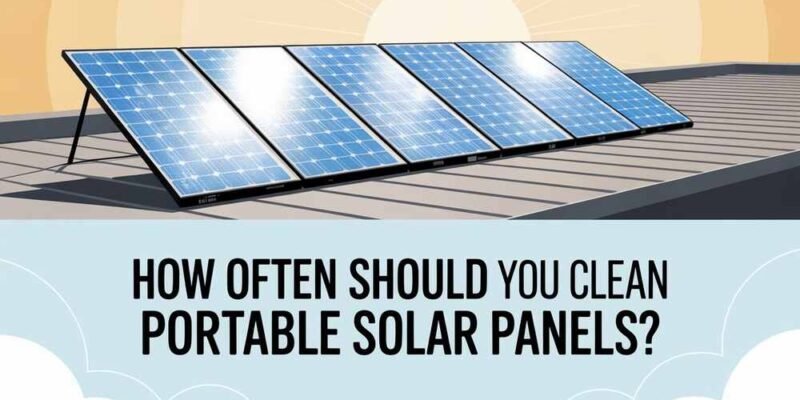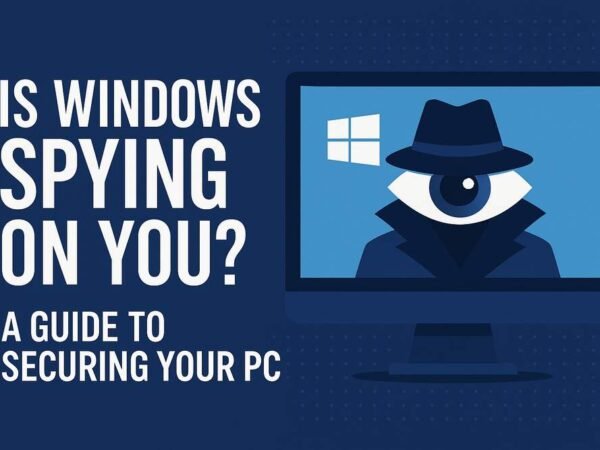Dirt and debris can significantly reduce the efficiency of your portable solar panels. Over time, dust, bird droppings, pollen, and even water spots can block sunlight, making your panels work harder to generate the same amount of power. For example, a thin layer of dust might seem harmless, but studies show it can decrease energy output by up to 10%. If you rely on solar power for camping, RV trips, or emergency backup, keeping your panels clean ensures you get the most out of every ray of sunlight. Regular cleaning also extends the lifespan of your panels by preventing long-term buildup that could damage the surface.
How Often Should You Clean Your Portable Solar Panel?
General Cleaning Guidelines for Different Environments
The frequency of cleaning depends largely on where and how you use your portable solar panels. If you live in a dry, dusty area, you may need to clean them every two weeks. Dust accumulates quickly in deserts or windy regions, reducing efficiency faster than in cleaner environments. On the other hand, if you’re near the coast, salt spray can leave a sticky film that requires monthly cleaning. For casual users—like campers or hikers—cleaning after each trip is a good habit. Dirt, leaves, and even insect residue can build up during outdoor adventures. If your panels stay mostly at home but are exposed to urban pollution, a monthly wipe-down should suffice. The key is consistency; waiting too long between cleanings makes the job more difficult and negatively impacts performance.
Signs Your Solar Panel Needs Cleaning
Sometimes, it’s obvious when your solar panel needs attention. A visible layer of grime, bird droppings, or pollen covering the surface is a clear sign. However, some issues are less noticeable. If your panel usually charges your phone in three hours but suddenly takes five, dirt might be the culprit. Similarly, if you notice uneven shading or dark spots, it’s time for a cleaning. Another indicator is weather patterns. After a sandstorm or heavy wind, check your panels even if they don’t look dirty. Fine particles can settle in a way that’s hard to see but still blocks sunlight. Regular inspections, especially after extreme weather, help maintain peak efficiency.
What Factors Influence Cleaning Frequency?
Dusty vs. Humid Climates: Adjusting Your Cleaning Schedule
In dusty regions, like deserts or construction zones, solar panels collect dirt much faster. A week without rain can leave a thick layer of dust, cutting efficiency by 15% or more. In these areas, cleaning every two weeks is ideal. Conversely, humid climates may have less dust but more mold or algae growth, especially if panels are near trees. Here, a monthly cleaning with a mild detergent helps prevent the buildup of organic matter. If you travel frequently, your cleaning schedule should adapt. Camping in a forest? Check for leaves and sap. Parking your RV near the beach? Salt residue needs prompt removal. Adjusting based on location ensures your panels stay efficient wherever you go.
How Rain Affects Solar Panel Cleanliness
Many people assume that rain naturally cleans solar panels, but this isn’t always the case. Light rain might wash away loose dust, but heavy rain can leave streaks or even push dirt into the edges of the panel. In areas with hard water, mineral deposits can dry on the surface, creating a cloudy film. If you live in a rainy climate, inspect your panels after storms to ensure they are functioning correctly. Streaks or water spots indicate that you’ll need a thorough cleaning. In drought-prone areas, occasional manual cleaning is necessary since rain won’t do the job for you.
Best Practices for Cleaning Portable Solar Panels
Safe and Effective Cleaning Methods
Always start by turning off and disconnecting the panel to avoid electrical risks. Use a soft microfiber cloth or sponge with lukewarm water—never abrasive materials that could scratch the surface. For stubborn dirt, a mix of water and mild soap works well. Gently wipe in one direction to prevent streaking. If your panel is mounted high, like on an RV, use a telescopic cleaning brush with a squeegee attachment. Avoid high-pressure hoses, as they can damage seals or wiring. After cleaning, dry the panel with a clean cloth to prevent water spots from forming.
Common Mistakes to Avoid When Cleaning
Never use harsh chemicals like bleach or ammonia, as they can degrade anti-reflective coatings. Scrubbing too hard or using rough brushes can cause micro-scratches, reducing efficiency over time. Also, avoid cleaning during peak sunlight hours—hot panels can cause water to evaporate quickly, leaving residues. Early morning or late afternoon is best. Another mistake is neglecting the frame and edges, where dirt accumulates and can migrate back onto the panel. Finally, don’t assume rain will do all the work—regular manual cleaning is still necessary for optimal performance.
Does Cleaning Improve Solar Panel Efficiency?
Absolutely. Studies show that dirty solar panels can lose 10–25% of their efficiency, depending on the buildup. For portable panels, which are smaller and have less margin for error, even a slight drop in performance can mean slower charging or insufficient power. For example, a camper relying on a 100W panel might find that dust reduces output to 75W—enough to delay charging essential devices. Regular cleaning ensures you get the full wattage you paid for. Over time, this also prevents permanent damage from corrosive substances, such as bird droppings or salt.
Conclusion
Cleaning your portable solar panels is a simple yet crucial maintenance task. By adjusting your schedule based on environment and usage, you’ll maximize efficiency and extend your lifespan. Whether you’re a weekend camper or rely on solar for off-grid living, clean panels mean reliable power. For those looking for high-quality portable solar panel, EcoFlow is a trusted brand known for durable products and excellent customer service. Keep your panels clean, and they’ll keep powering your adventures for years to come.













